In the quiet hills of Khiam, a village nestled in the south of Lebanon, the sound of birdsong has slowly returned. But it is accompanied by the echoes of hammers and the low hum of generators—signs of life, and of rebuilding.
Not long ago, this same village was plunged into devastation during the Israeli aggression on Lebanon in 2024. One of the starkest scars of that assault is the heavily damaged Amel Association International medical center, a facility that once stood as a beacon of health care, hope, and humanitarian values in a long-neglected area.
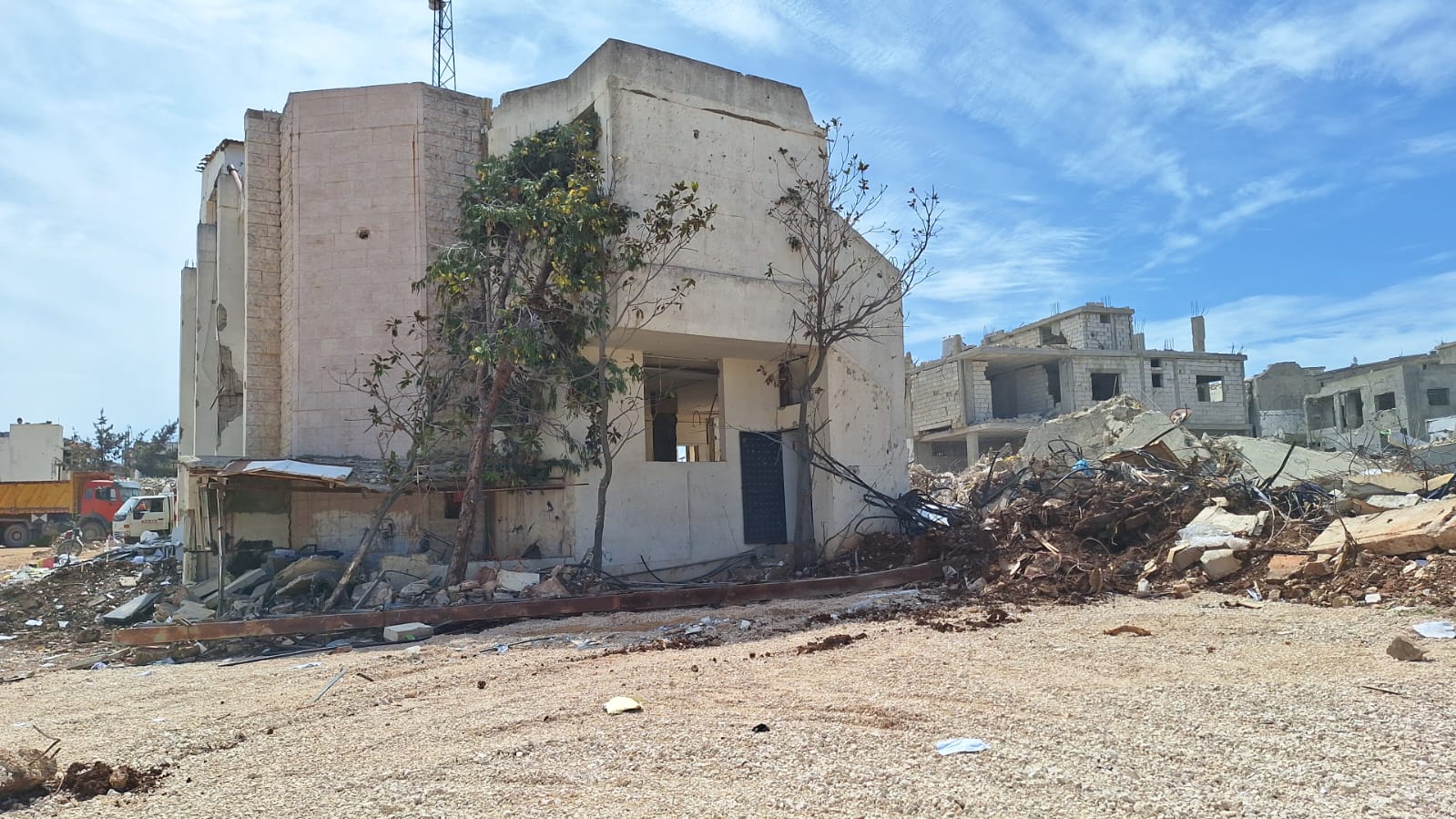 Despite its protected status under International Humanitarian Law (IHL), the Khiam center—like so many other health units across Lebanon—was bombed by Israeli occupation forces. The attack represents more than the destruction of bricks and mortar; it was an assault on the community’s right to health, to safety, and to dignity. According to IHL, health establishments and units, including hospitals and clinics, must not be targeted during conflict. Such protections are enshrined in the Geneva Conventions and are binding on both State and non-State actors. But in 2024, those protections were blatantly disregarded.
Despite its protected status under International Humanitarian Law (IHL), the Khiam center—like so many other health units across Lebanon—was bombed by Israeli occupation forces. The attack represents more than the destruction of bricks and mortar; it was an assault on the community’s right to health, to safety, and to dignity. According to IHL, health establishments and units, including hospitals and clinics, must not be targeted during conflict. Such protections are enshrined in the Geneva Conventions and are binding on both State and non-State actors. But in 2024, those protections were blatantly disregarded.
A Humanitarian Target
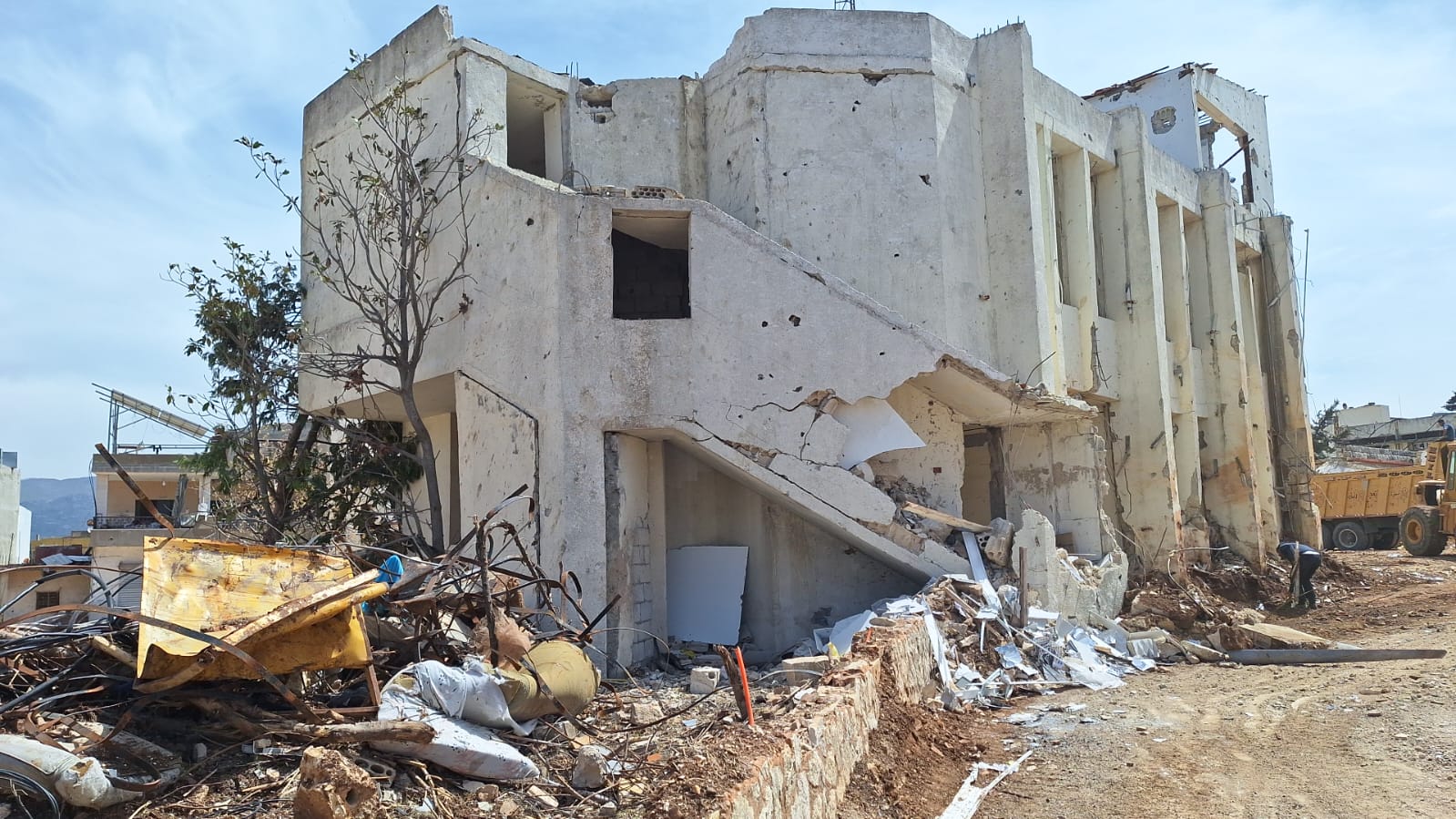 What happened in Khiam was not collateral damage—it was wanton destruction. Eyewitnesses report that the Amel center, clearly marked as a medical facility, was targeted despite its neutral and purely humanitarian function. Its walls were torn open, medical equipment reduced to twisted steel, and archives buried under layers of dust and debris. The surrounding neighborhood bore similar wounds, with homes and shops flattened, trees burned, and lives lost.
What happened in Khiam was not collateral damage—it was wanton destruction. Eyewitnesses report that the Amel center, clearly marked as a medical facility, was targeted despite its neutral and purely humanitarian function. Its walls were torn open, medical equipment reduced to twisted steel, and archives buried under layers of dust and debris. The surrounding neighborhood bore similar wounds, with homes and shops flattened, trees burned, and lives lost.
Human rights experts and international observers have since condemned the attacks on Khiam as violations of international law, potentially rising to the level of war crimes.
From Rubble, Resilience
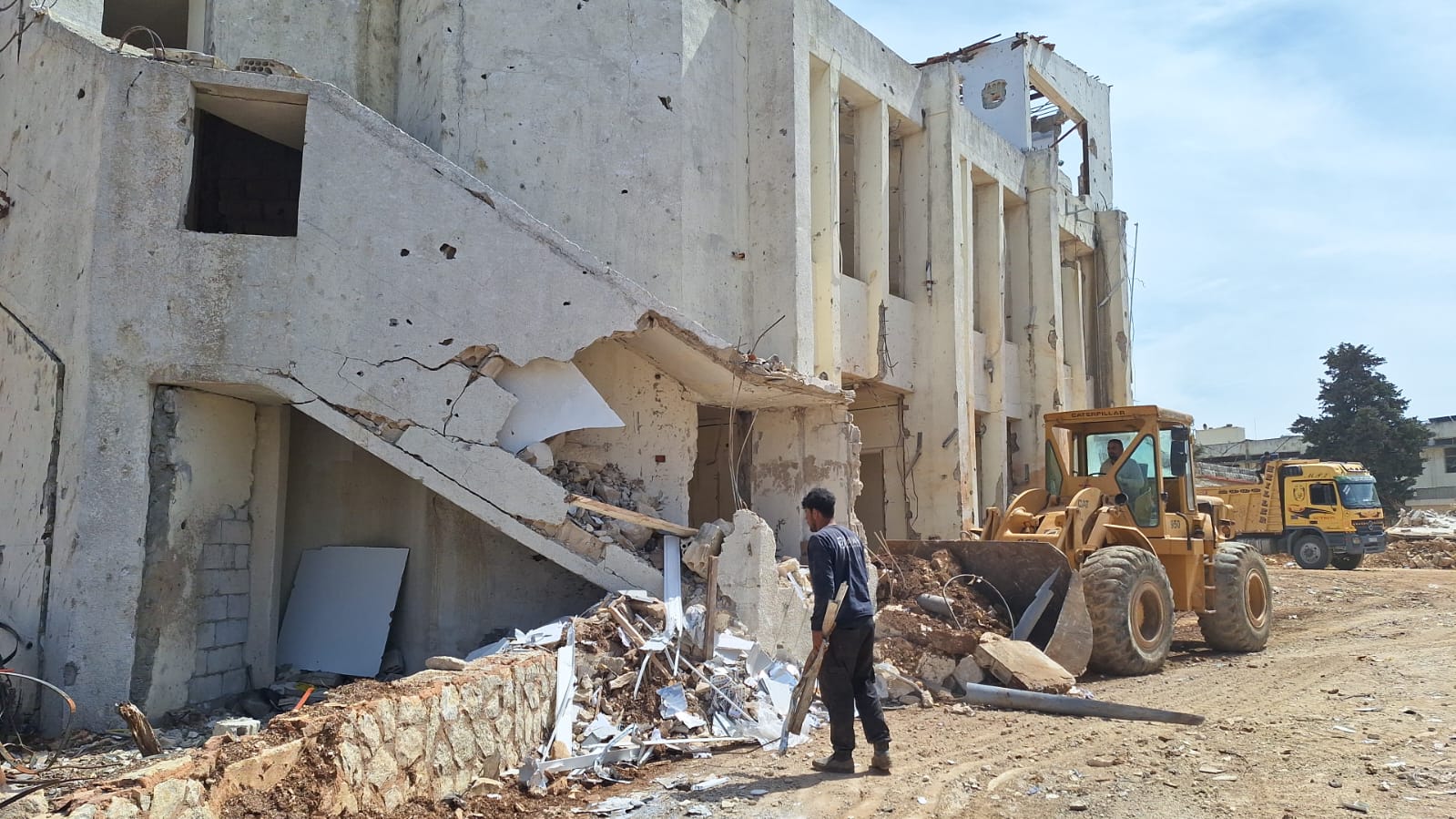 Yet, from the ashes, hope has begun to rise.
Yet, from the ashes, hope has begun to rise.
In the weeks following the cessation of hostilities, Amel Association International—a long-standing Lebanese NGO founded in 1979—mobilized its team on the ground. Staff members, many of whom live in the surrounding communities, returned to the site, not with despair, but with determination. Their first mission: clear the debris and retrieve what could be saved.
“Every patient record matters. Every instrument that survived matters,” says Mayssam, a staff who has worked at the Khiam center for more than a decade. “We came back not just to restore a building, but to reclaim a space of humanity that was violated.”
With support from local residents and Amel’s national and international network, the team began salvaging the medical archive—fragile paper records covered in ash and dust, now carefully cleaned and digitized to ensure their preservation.
A Community Rises
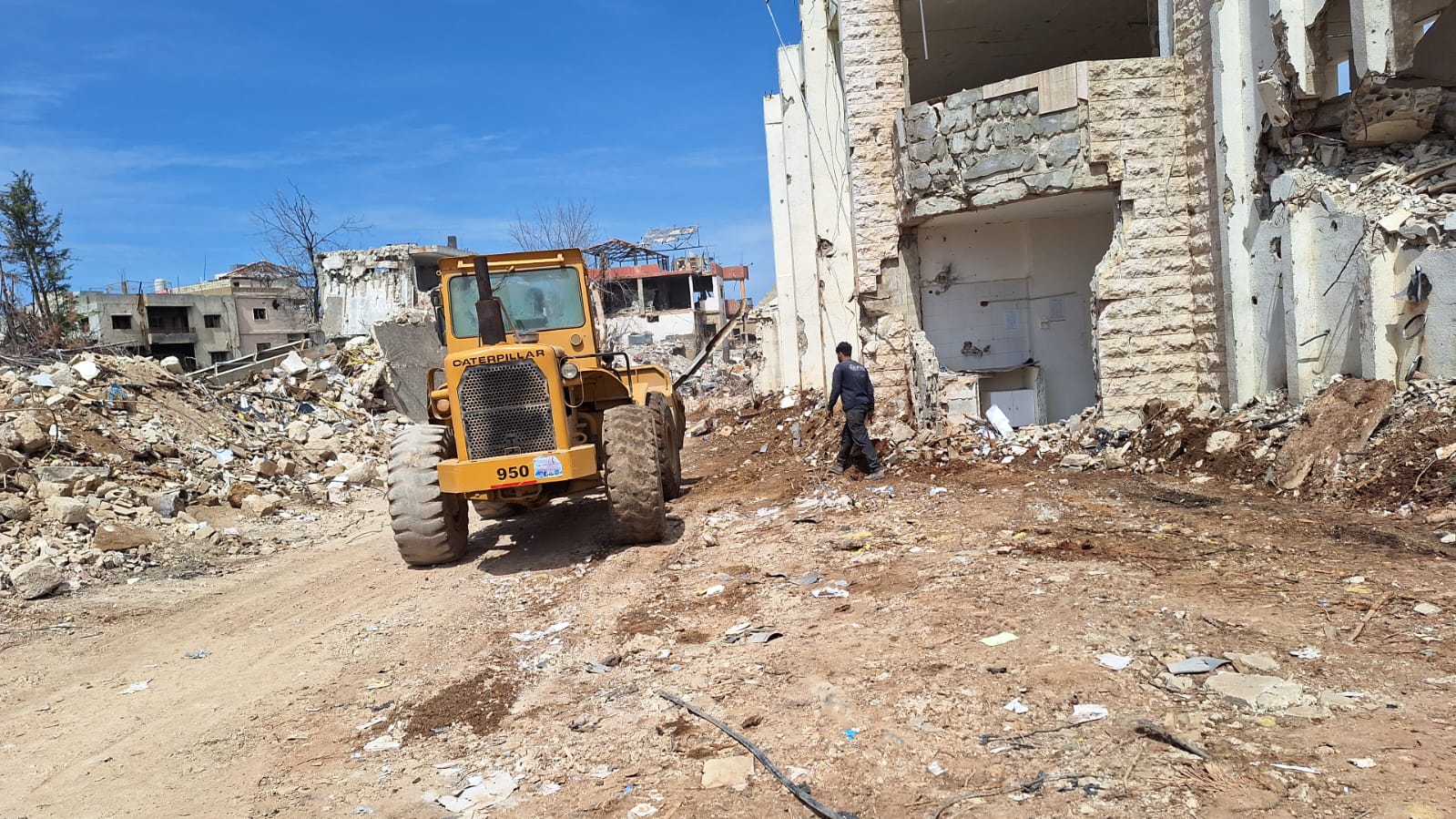 In a powerful gesture of solidarity, a resident of Khiam donated a plot of land to Amel Association to support the establishment of a new medical center. Construction workshops are already underway, with architectural plans reflecting the resilience and needs of the community: a trauma unit, maternal care services, psychological support facilities, and renewable energy features to ensure sustainability during future crises.
In a powerful gesture of solidarity, a resident of Khiam donated a plot of land to Amel Association to support the establishment of a new medical center. Construction workshops are already underway, with architectural plans reflecting the resilience and needs of the community: a trauma unit, maternal care services, psychological support facilities, and renewable energy features to ensure sustainability during future crises.
“This isn’t just about rebuilding what was lost. It’s about building back better, and building trust in humanitarian principles,” explains Dr. Kamel Mohanna, Amel’s founder and president. “Even in the face of violence, we remain committed to neutrality, impartiality, and human dignity.”
The Broader Implications
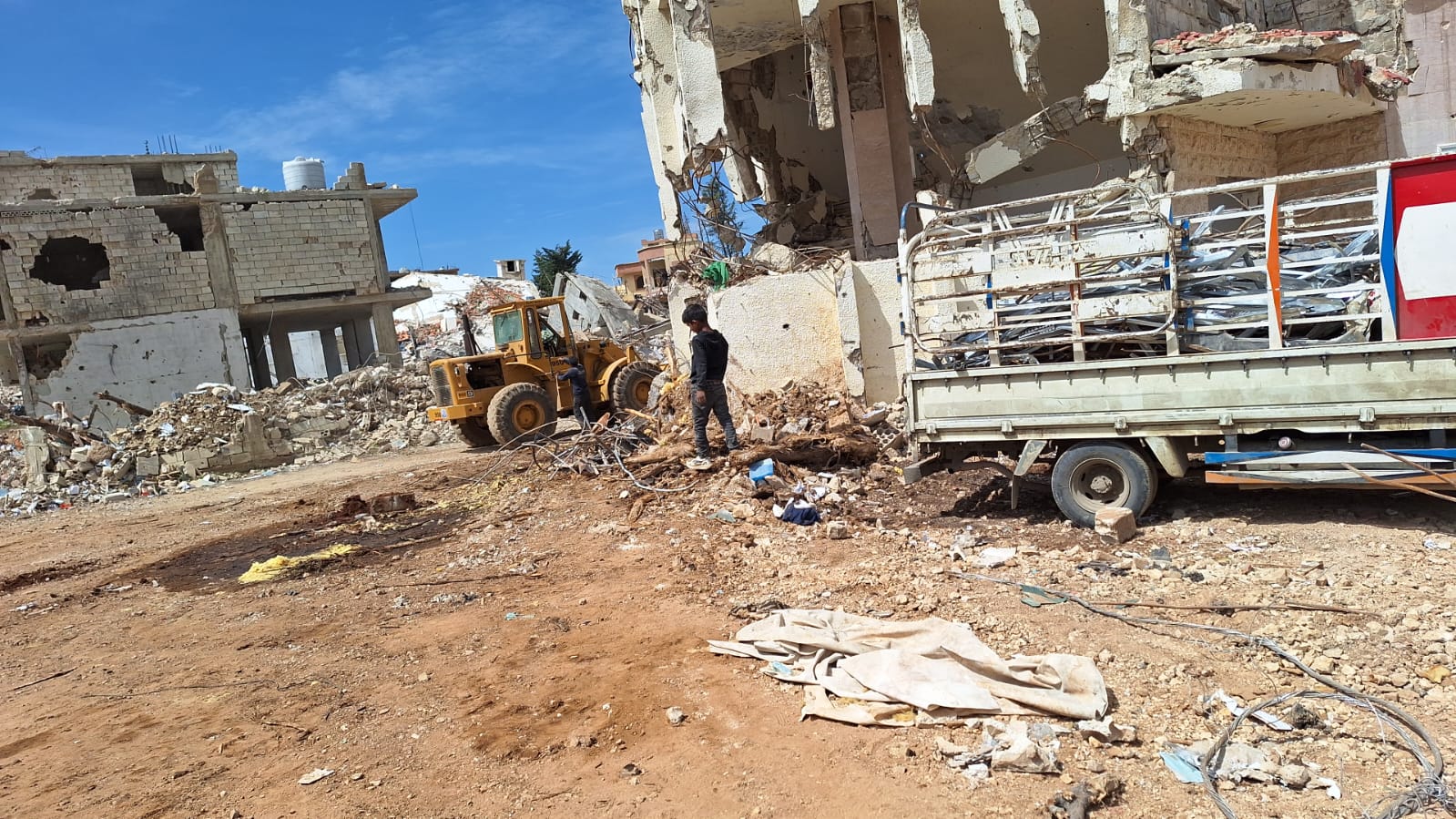 The destruction of the Khiam center is not an isolated incident. It reflects a disturbing pattern where civilian infrastructure—including schools, health centers, and water systems—have come under attack in violation of international norms. While International Humanitarian Law offers protections for access to health care in times of conflict, these laws are only meaningful if respected and enforced.
The destruction of the Khiam center is not an isolated incident. It reflects a disturbing pattern where civilian infrastructure—including schools, health centers, and water systems—have come under attack in violation of international norms. While International Humanitarian Law offers protections for access to health care in times of conflict, these laws are only meaningful if respected and enforced.
In situations that fall below the threshold of armed conflict, International Human Rights Law (IHRL) still obliges States to ensure the right to health. Khiam is a reminder that legal frameworks must be backed by political will and international accountability.
Healing as Resistance
Back in Khiam, there is still much to do. But the people here have already achieved something remarkable: in defiance of destruction, they chose to heal. The work of Amel Association, supported by ordinary citizens and driven by extraordinary commitment, shows that humanitarianism cannot be bombed into silence.
The new center will rise soon, not just as a clinic, but as a monument to human resilience.

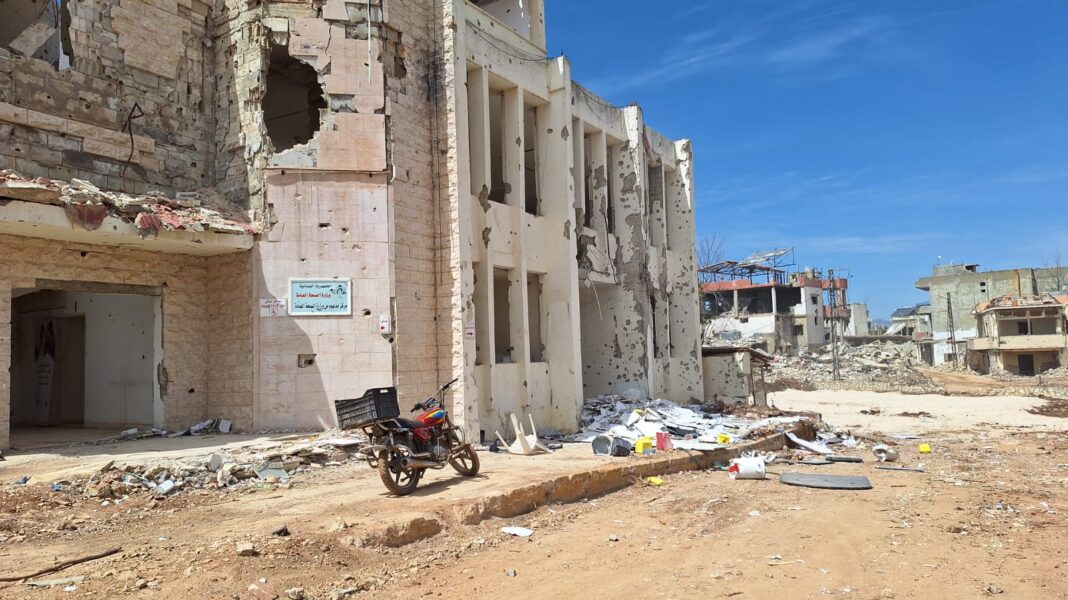



 Creative Commons Attribution 4.0 International license
Creative Commons Attribution 4.0 International license